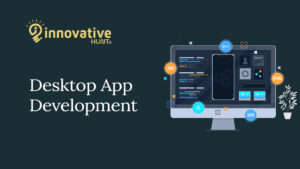In today’s digital age, having a robust mobile application is crucial for businesses aiming to reach a broader audience and enhance their customer experience. However, finding the right app developer can be challenging, especially when considering cost, expertise, and flexibility. This is where Innovative Hunt comes into play. As a leading recruitment firm specializing in remote hiring, we connect you with top-tier app developers who can bring your vision to life. In this article, we’ll explore why hire app developer remotely through Innovative Hunt is the best decision for your business.
Hire App Developer Access to a Global Talent Pool:
One of the primary advantages of hire app developer through Innovative Hunt is the access to a global talent pool. Traditional hiring methods limit you to local or regional candidates, often restricting your choices. By opting for a remote developer, you open up your business to a diverse range of skilled professionals worldwide. This global approach ensures that you find the perfect match for your specific project needs, whether it’s a mobile app, web app, or any other software development task.
Hire App Developer Cost-Effective Solutions:
Hire app developer remotely is often more cost-effective than hiring locally. With Innovative Hunt, you can save on expenses such as office space, equipment, and other overhead costs. Additionally, our extensive network of developers allows us to offer competitive rates without compromising on quality. This cost-effective approach enables businesses of all sizes to develop high-quality apps while staying within budget.
Flexibility and Scalability:
Remote hiring through Innovative Hunt offers unparalleled flexibility. Depending on your needs, you can hire app developers on a project basis, part-time, or full-time. This flexibility allows you to scale your team up or down as required, ensuring you have the right resources at the right time. Whether you need a single developer for a short-term project or a team of developers for a long-term engagement, we’ve got you covered.
Expertise in Diverse Technologies:
At Innovative Hunt, we pride ourselves on connecting clients with developers who are experts in various technologies and platforms. Whether you need someone proficient in iOS, Android, cross-platform development, or specialized in frameworks like React Native, Flutter, or Swift, we have the right talent for you. Our developers are not just coders; they are problem solvers who bring creativity and innovation to every project.
Streamlined Hiring Process:
We understand that the hiring process can be time-consuming and stressful. That’s why Innovative Hunt has developed a streamlined hiring process that saves you time and effort. From the initial consultation to the final hiring decision, we manage all aspects of the recruitment process. We thoroughly vet all candidates, conduct comprehensive interviews, and provide you with a shortlist of top developers who match your requirements. This ensures a hassle-free experience and allows you to focus on what matters most – your business.
Enhanced Productivity and Efficiency:
Remote developers often bring a high level of productivity and efficiency to the table. Without the distractions of a traditional office environment, remote developers can focus on their tasks and deliver high-quality work in less time. Innovative Hunt’s developers are accustomed to remote work setups and are well-versed in using various collaboration tools and platforms to stay connected and productive. This results in faster turnaround times and ensures that your projects are completed on schedule.
Cultural Fit and Communication:
A common concern when hiring remotely is ensuring a good cultural fit and effective communication. At Innovative Hunt, we take these factors seriously. We assess not only the technical skills of our hire app developer but also their soft skills, such as communication, teamwork, and adaptability. We ensure that the developers we recommend are technically proficient and align with your company’s culture and values. This holistic approach leads to better collaboration, smoother project execution, and overall satisfaction.
Mobile App Development:
In the digital age, mobile applications are more than just a convenience—they’re a vital component of modern business strategies. For companies looking to expand their reach and engage with users on the go, understanding the essentials of mobile app development is crucial. At Innovative Hunt, we specialize in providing clients with top-notch remote developers who excel in various areas of app development, including mobile app development. This guide delves into the essentials of mobile app development, helping you understand why it’s important and how to hire app developer to bring your vision to life.
What is Mobile App Development?
Mobile app development is the process of creating software applications specifically designed to run on mobile devices like smartphones and tablets. These applications can serve a wide range of purposes, from offering entertainment and social networking to providing tools for productivity and business management. Mobile App Development can be divided into two primary categories: native app development and cross-platform development.
Why Mobile App Development Matters:
The rise of mobile technology has transformed the way we interact with the world. Mobile apps have become integral to our daily lives, offering solutions for communication, entertainment, shopping, and much more. For businesses, having a mobile app is not just about keeping up with trends—it’s about staying relevant and accessible to your audience.
Key Benefits of Mobile App Development:
- Increased Accessibility:
Mobile apps make it easy for users to access your services or products anytime, anywhere.
- Enhanced User Engagement:
Apps provide a more personalized experience, which can lead to higher engagement and customer loyalty.
- Brand Visibility:
A well-designed mobile app can boost your brand’s visibility and help you stand out in a crowded market.
- Data Collection:
Apps can collect valuable user data, helping you understand customer preferences and improve your offerings.
- Competitive Advantage:
In a competitive market, having a mobile app can give you an edge over competitors who are not leveraging this technology.
Important Things To Look For When Selecting A Mobile App Developer:
Selecting the best mobile app developer is essential to the project’s success. When hiring, keep the following things in mind:
- Skills & Knowledge:
Seek developers who have a track record of successfully creating mobile applications. Check their portfolio to see if they have experience with the type of app you want to build.
- Technical Skills:
Ensure the hire app developer is proficient in the relevant programming languages and tools for your project, whether it’s Swift for iOS, Kotlin for Android, or JavaScript for cross-platform development.
- Understanding of Your Business Needs:
A good developer should understand your business goals and be able to translate them into a functional and user-friendly app.
- Collaboration and Communication:
A successful growth process depends on effective communication. Select a developer that is receptive to criticism and answers quickly.
- Post-Launch Support:
Ensure the developer provides support after the app is launched, including maintenance, updates, and troubleshooting.
Why Choose Innovative Hunt?
At Innovative Hunt, we specialize in connecting clients with top remote developers who excel in mobile app development. Our recruitment process ensures that you find the right talent to bring your mobile app ideas to life. By choosing us, you gain access to a pool of experienced developers who are skilled in both native and cross-platform development, allowing you to make the best choice for your project.
Whether you need a native iOS or Android app or any other type of mobile application, our team at Innovative Hunt is here to help you find the perfect hire app developer to meet your needs.
Native App Development:
In today’s digital landscape, having a high-quality mobile app is essential for businesses looking to engage users and enhance their services. One of the most effective ways to achieve this is through native app development. At Innovative Hunt, we specialize in connecting clients with skilled remote developers who excel in native app development, ensuring your projects are in capable hands. In this guide, we’ll explore what native app development entails, its benefits, and how hiring the right developer can make a significant difference.
What is Native App Development?
The process of developing software apps only for a single platform or operating system is known as native app development. Unlike web or hybrid apps, Native Apps are designed to leverage the unique features and capabilities of a given platform, such as iOS or Android. This approach ensures that the app performs optimally and delivers a seamless user experience.
Key Characteristics of Native Apps:
- Platform-Specific Code:
Native apps are built using platform-specific languages and tools. For iOS, developers use Swift or Objective-C, while Android developers use Kotlin or Java.
- Enhanced Performance:
Because native apps are tailored for a specific platform, they tend to have faster performance and better responsiveness compared to hybrid or web apps.
- Access to Device Features:
Native apps can fully utilize the hardware and software features of the device, such as the camera, GPS, and accelerometer, leading to a richer user experience.
- User Experience:
Native apps are designed to adhere to the platform’s design guidelines, providing a consistent and intuitive interface that aligns with user expectations.
Benefits of Native App Development:
Native app development offers several advantages that can be crucial for the success of your mobile application:
- Optimal Performance:
Native apps are compiled to run directly on the device’s hardware, resulting in smoother performance and faster load times. This is particularly important for applications that require high processing power, such as games or complex data-driven apps.
- Better User Experience:
Native apps provide a more intuitive and fluid user experience. They adhere to the design guidelines of the platform, ensuring that the app looks and feels like a natural extension of the device’s operating system.
- Access to Advanced Features:
Native development allows developers to integrate advanced features and capabilities specific to the platform, such as AR/VR functionalities, biometric authentication, and background processing.
- Offline Functionality:
Native apps can function without an internet connection, which is advantageous for users who need access to certain features or content while offline.
- Regular Updates and Support:
Both Apple’s App Store and Google Play Store frequently update their requirements and guidelines. Native apps can be updated easily to comply with these changes, ensuring compatibility and continued support.
Why Hire a Native App Developer?
Hiring a skilled native app developer is crucial for achieving the best results in your mobile app development project. Here’s why:
- Expertise and Experience:
Native app developers have specialized knowledge of the platform they work on, including its programming languages, development tools, and best practices. This expertise is essential for building high-quality, reliable apps.
- Customization and Optimization:
A native app developer can tailor the app to the specific needs of your business and optimize it for performance, ensuring that it meets your exact requirements and provides a superior user experience.
- Troubleshooting and Maintenance:
Experienced developers are adept at identifying and fixing issues that may arise during the development process or after the app is launched. They also provide ongoing maintenance to keep the app running smoothly.
- Up-to-Date Knowledge:
Native app development is a rapidly evolving field. A professional developer stays current with the latest trends, technologies, and updates, ensuring that your app incorporates the newest features and remains competitive.
How to Choose the Right Native App Developer:
Selecting the right hire app developer is a critical step in the app development process. Here are some factors to consider when hiring a native app developer through Innovative Hunt:
- Technical Skills:
Look for hire app developer with expertise in the specific programming languages and tools used for your target platform (e.g., Swift for iOS, Kotlin for Android). Review their portfolio to assess their proficiency and experience.
- Experience with Similar Projects:
Evaluate the developer’s experience with projects similar to yours. This includes their familiarity with the industry, the type of app, and any specific features or functionalities you require.
- Communication Skills:
Effective communication is essential for successful project execution. Ensure that the developer can clearly understand your requirements, provide regular updates, and collaborate effectively.
- References and Reviews:
Check references and reviews from previous clients to gauge the developer’s reliability, work ethic, and overall performance. Positive feedback and a strong track record are good indicators of a trustworthy developer.
- Problem-Solving Abilities:
Native app development can present complex challenges. Choose a developer who demonstrates strong problem-solving skills and a proactive approach to overcoming obstacles.
Working with Innovative Hunt:
At Innovative Hunt, we understand the importance of finding the right talent for your app development needs. Our recruitment process focuses on matching you with top-notch remote developers who have the expertise and experience to deliver exceptional results. By leveraging our network of skilled professionals, we ensure that you have access to the best talent available, regardless of location.
Whether you’re looking to build a cutting-edge iOS or an innovative Android application, our team is here to help you hire app developer for your project. With our support, you can confidently embark on your app development journey, knowing that you have a dedicated and capable developer on your side.
Cross-Platform Mobile Development:
In the realm of mobile app development, businesses are increasingly looking for ways to optimize their resources and reach a broader audience. Cross-Platform Mobile Development (CPMD) has emerged as a powerful solution to meet these needs, enabling developers to build applications that run on multiple platforms from a single codebase. At Innovative Hunt, we understand the importance of choosing the right development approach for your project. Here’s a comprehensive look at Cross-Platform Mobile Development and why it might be the right choice for you.
What is Cross-Platform Mobile Development?
Cross-platform mobile Development refers to the practice of creating mobile applications that are compatible with multiple operating systems, such as iOS and Android, using a single codebase. This approach contrasts with native development, where separate codebases are used for each platform. By leveraging cross-platform frameworks, hire app developer can streamline the development process, reduce costs, and maintain consistency across different platforms.
Key Benefits of Cross-Platform Mobile Development:
- Cost Efficiency
One of the most significant advantages of Cross-platform Development is its cost efficiency. Developing and maintaining a single codebase for multiple platforms significantly reduces development time and costs. This is particularly beneficial for startups and small businesses with limited budgets, as it allows them to allocate resources more effectively.
- Faster Time-to-Market
Cross-platform frameworks enable developers to work on a single codebase, which speeds up the development process. As a result, your app can launch more quickly, offering you a market advantage. The reduced development time also means quicker updates and improvements.
- Consistent User Experience
Ensuring a consistent user experience across different platforms can be challenging with native development due to platform-specific design guidelines and features. Cross-platform frameworks often come with built-in components and tools that help maintain a uniform look and feel across various devices, enhancing the overall user experience.
- Simplified Maintenance
Maintaining separate codebases for iOS and Android can be cumbersome and error-prone. With cross-platform development, you only need to manage one codebase, making it easier to implement updates, fix bugs, and ensure compatibility with new device versions.
- Wider Reach
By deploying your app across multiple platforms, you can reach a broader audience without the need for separate development efforts. This is crucial for maximizing your app’s visibility and user base.
Popular Cross-Platform Mobile Development Frameworks:
- Adaptive Native
One of the most well-known cross-platform frameworks is React Native, which was created by Facebook. It enables programmers to create mobile applications with React and JavaScript. React Native provides a near-native performance and feel, making it an excellent choice for high-performance applications. It also boasts a large community and a wealth of libraries and tools.
- Flutter
Flutter, created by Google, uses the Dart programming language and offers a rich set of pre-designed widgets and tools. It has a quick development cycle and an expressive user interface. Flutter’s hot reload feature allows hire app developer to see changes in real time, which accelerates the development process and improves productivity.
- Xamarin
Xamarin, a Microsoft-owned framework, uses C# and .NET for cross-platform development. It offers a robust set of tools and libraries, allowing developers to create high-quality apps with native performance. Xamarin integrates well with the Microsoft ecosystem, making it a good choice for businesses already using Microsoft technologies.
- Ionic
Ionic is a framework that utilizes web technologies like HTML, CSS, and JavaScript to build mobile applications. It’s known for its ease of use and flexibility, allowing hire app developer to create hybrid apps that run in a web view. Ionic is ideal for projects that require quick development and a cost-effective solution.
- PhoneGap/Cordova
PhoneGap, also known as Apache Cordova, is a framework that enables developers to build mobile apps using web technologies. It provides a set of APIs to access native device features, such as the camera and GPS. While it is less popular than some newer frameworks, it remains a viable option for certain types of applications.
Considerations When Choosing Cross-Platform Development:
While cross-platform development offers numerous advantages, it’s essential to consider the following factors before making a decision:
- Performance
While modern cross-platform frameworks provide near-native performance, some complex applications may still face performance issues. Assess your app’s performance requirements and test the framework’s capabilities accordingly.
- Native Features
If your app requires extensive use of native features or complex animations, you may need to evaluate whether the chosen framework can support these requirements. Some frameworks may have limitations in accessing advanced native functionalities.
- Community and Support
A strong developer community and comprehensive support resources are crucial for successful cross-platform development. Ensure that the framework you choose has a robust community and ample documentation to assist with development and troubleshooting.
- Future Updates
Cross-platform frameworks are continually evolving. It’s essential to choose a framework that is actively maintained and updated to ensure long-term compatibility and support.
Why Choose Innovative Hunt for Your Cross-Platform Development Needs?
At Innovative Hunt, we specialize in connecting businesses with highly skilled developers who excel in cross-platform mobile development. Our team of experts is adept at using the latest frameworks and technologies to deliver high-quality, scalable, and efficient applications that meet your specific needs.
By partnering with us, you benefit from:
- Access to Top Talent:
We connect you with experienced developers who are proficient in cross-platform frameworks.
- Tailored Solutions:
We understand your unique requirements and deliver solutions that align with your business goals.
- Cost Efficiency:
Our approach ensures you get the best value for your investment with streamlined development processes and reduced costs.
- Ongoing Support:
We provide comprehensive support throughout the development lifecycle, from initial consultation to post-launch maintenance.
Web App Development:
In the ever-evolving digital landscape, web applications have become integral to business success. From interactive e-commerce platforms to sophisticated enterprise solutions, web apps play a critical role in enhancing user experience and operational efficiency. At Innovative Hunt, we understand the importance of having a skilled developer to build and maintain your web applications. If you’re looking to hire app developer for your web projects, this guide will provide you with valuable insights into web app development and how you can find the right talent remotely.
What is Web App Development?
Web app development involves creating applications that run on web browsers rather than on local devices. These applications are accessible from any device with an internet connection, making them highly versatile and convenient. Web apps can range from simple sites with basic functionality to complex systems with extensive features and integrations.
Web App Development typically involves both frontend and backend development:
- Frontend Development:
This is the part of web development that deals with the user interface and user experience. It focuses on what users see and interact with on the web application. Technologies involved include HTML, CSS, and JavaScript, along with frameworks and libraries like React, Angular, and Vue.js.
- Backend Development:
This part deals with the server-side logic, databases, and application architecture. It ensures that the front end interacts correctly with the server and data. Backend technologies include languages like Python, Ruby, Java, PHP, and frameworks like Django, Flask, Ruby on Rails, and Laravel.
Key Considerations for Web App Development:
When hiring a remote developer for web app development, it’s important to consider several factors to ensure the success of your project:
- Technical Expertise:
Web development encompasses a range of technologies and languages. Ensure that the developer has expertise in the specific technologies required for your project. For instance, if your app requires a complex user interface, a developer skilled in frontend technologies and frameworks is essential.
- Experience and Portfolio:
Review the hire app developer past projects to gauge their experience and capabilities. A strong portfolio demonstrating a variety of web applications will provide insight into their skills and style.
- Understanding of Your Business Needs:
A successful web app should align with your business goals and user needs. Choose a developer who understands your industry and can translate your requirements into a functional and engaging application.
- Communication Skills:
Since you’ll be working with the developer remotely, effective communication is crucial. Ensure they are responsive and can clearly articulate their ideas and progress.
- Security and Compliance:
Web applications often handle sensitive data. Make sure the developer is knowledgeable about security best practices and compliance with regulations such as GDPR or CCPA.
- Scalability and Performance:
Your web app should be designed to handle growth and perform efficiently under various conditions. A skilled developer will ensure that the application is scalable and optimized for performance.
Types of Web Apps:
Understanding the different types of web apps can help you determine what kind of developer you need:
- Static Web Apps:
These are basic websites with fixed content. They are relatively simple and cost-effective to build but lack interactive features.
- Dynamic Web Apps:
These applications generate content in real time based on user interactions or other inputs. They are more complex than static web apps and require backend development.
- Single Page Applications (SPAs):
During user interaction, the material is dynamically updated on a single HTML page loaded by a SPA. They provide a smooth and responsive user experience. Popular frameworks for SPAs include React and Angular.
- Progressive online Apps (PWAs):
PWAs are online and mobile application best practices combined. They offer offline capabilities, push notifications, and fast loading times, making them a versatile choice for various applications.
- Enterprise Web Apps:
These are complex, large-scale applications used by businesses for internal processes. They often require advanced functionalities, integrations, and robust security measures.
- E-Commerce Web Apps:
These applications are designed for online shopping. They include features like product catalogs, shopping carts, payment gateways, and customer accounts.
- Content Management Systems (CMS):
CMS-based web apps allow users to create, manage, and modify digital content without needing technical knowledge. Examples include WordPress, Joomla, and Drupal.
Finding the Right Remote Web Developer:
When searching for a hire app developer for your web app project, consider using a recruitment service like Innovative Hunt. We specialize in connecting businesses with top-notch remote developers who have the skills and experience to meet your needs.
Here’s how we can help you find the perfect match:
- Tailored Recruitment:
We understand your specific requirements and match you with developers who have the right expertise and experience for your project.
- Global Talent Pool:
Our extensive network includes developers from around the world, giving you access to a diverse range of skills and perspectives.
- Rigorous Screening:
We conduct thorough vetting to ensure that candidates meet our high standards for technical proficiency, communication skills, and reliability.
- Ongoing Support:
We provide support throughout the hiring process and beyond, ensuring a smooth integration of the developer into your team.
Desktop App Development:
In the world of technology, desktop applications remain a cornerstone for businesses and individuals alike. Despite the rapid rise of web and mobile apps, desktop applications continue to play a vital role due to their robustness, performance, and ability to leverage local hardware resources. At Innovative Hunt, we specialize in connecting clients with highly skilled remote developers to meet their specific needs. If you are looking to hire app developer for desktop development, understanding the intricacies of this field can help you make informed decisions and ensure your project’s success.
What is Desktop App Development?
Desktop app development involves creating software applications that run directly on a desktop operating system such as Windows, macOS, or Linux. Unlike web applications, which are accessed through a browser, Desktop Apps are installed locally on a user’s computer and offer a high degree of performance, stability, and integration with the underlying system.
Key Benefits of Desktop Apps:
- Performance:
Desktop apps can harness the full power of a computer’s hardware, resulting in faster execution and smoother user experiences.
- Offline Access:
Users can access desktop applications without needing an internet connection, making them ideal for environments with limited connectivity.
- Enhanced Security:
Local installations can offer better security measures, reducing the risk of data breaches compared to web-based applications.
- Rich Functionality:
Desktop apps can offer advanced features and complex functionalities that may be difficult to implement in web applications.
Types of Desktop Applications:
Desktop applications can be categorized into several types based on their functionality and platform:
- Standalone Applications:
These are self-contained programs designed to perform a specific task, such as Microsoft Office applications (Word, Excel, PowerPoint).
- Integrated Applications:
These applications are part of a suite of tools that work together, like Adobe Creative Suite, which includes Photoshop, Illustrator, and InDesign.
- System Utilities:
These applications manage or enhance system performance and operations, such as antivirus software or system optimization tools.
- Games:
Many high-performance games are developed as desktop applications to leverage advanced graphics and processing power.
Key Considerations for Desktop App Development:
When planning a desktop application, several factors need to be considered to ensure its success:
- Platform Choice:
Decide whether your application will be developed for Windows, macOS, Linux, or multiple platforms. This choice influences the development tools and languages used.
- User Experience (UX):
Desktop applications should offer an intuitive and engaging user interface. Understanding the target audience and their needs is crucial for designing an effective UX.
- Integration with System Resources:
Desktop apps often require integration with system-level resources, such as file systems, hardware devices, or other software. Effective integration enhances the application’s functionality and performance.
- Security:
Implementing robust security measures is essential, especially if the application handles sensitive data or operates in a high-risk environment.
- Maintenance and Updates:
Plan for ongoing maintenance and updates to address bugs, add new features, and ensure compatibility with future operating system releases.
Popular Programming Languages and Frameworks for Desktop App Development:
Choosing the right programming language and framework is critical for developing a high-quality desktop application. These are a few of the most well-liked choices:
- C++:
Known for its performance and control over system resources, C++ is widely used for developing high-performance desktop applications and games. It is a go-to choice for applications requiring complex algorithms and real-time processing.
- C#:
Utilized with the .NET framework, C# is a preferred language for developing Windows desktop applications. It offers a rich set of libraries and tools for creating user-friendly and efficient applications.
- Java:
Java is a versatile language used for cross-platform desktop applications. With frameworks like JavaFX and Swing, Java enables developers to create visually appealing and functional desktop apps.
- Swift:
For macOS application development, Swift is a modern language introduced by Apple. It provides a powerful and efficient way to build applications tailored to the macOS ecosystem.
- Python:
Python, with libraries like PyQt and Tkinter, is increasingly used for developing desktop applications due to its simplicity and ease of use. It is particularly useful for rapid prototyping and applications that do not require intense performance.
- Electron:
Electron allows developers to build cross-platform desktop applications using web technologies like HTML, CSS, and JavaScript. It combines the power of Node.js with a Chromium-based browser to deliver modern desktop experiences.
Why Hire a Remote Desktop App Developer?
Hire app developer offers numerous advantages, especially when it comes to desktop app development:
- Access to Global Talent:
By hiring remotely, you can tap into a global pool of skilled developers who bring diverse perspectives and expertise to your project.
- Cost-Effectiveness:
Remote developers are common have fewer overhead expenses, which can save your company money without sacrificing quality.
- Flexibility:
Working remotely allows developers to be flexible and even expedite project schedules because they can collaborate across time zones.
- Specialized Skills:
You can locate developers who meet your project needs through remote hiring if they have specialized knowledge of particular languages, frameworks, or desktop application kinds.
How Innovative Hunt Can Help:
At Innovative Hunt, we understand the complexities of desktop app development and the importance of finding the right talent for your project. Our platform connects you with experienced remote developers who possess the technical expertise and industry knowledge needed to bring your vision to life. Whether you require a C++ expert for high-performance applications or a Python developer for a rapid prototype, we have the resources to meet your needs.
Steps to Hire a Remote Developer through Innovative Hunt:
- Define Your Requirements:
Clearly outline your project needs, including platform specifications, programming languages, and desired features.
- Browse Developer Profiles:
Explore profiles of qualified developers with relevant experience and skills.
- Conduct Interviews:
Engage in detailed discussions with potential candidates to assess their suitability for your project.
- Select and Onboard:
Choose the developer who best fits your requirements and integrate them into your project workflow.
By partnering with Innovative Hunt, you can streamline the hiring process and ensure that you get the best talent to develop high-quality desktop applications that meet your business goals.
Game Development:
In the dynamic world of gaming, creating a successful game requires more than just creativity; it demands technical expertise, innovative thinking, and a deep understanding of user engagement. At Innovative Hunt, we excel in connecting clients with skilled developers who can turn your game ideas into reality. Whether you’re looking to develop a groundbreaking new game or enhance an existing one, hiring the right app developer is key to your success.
In this comprehensive guide, we’ll delve into the essential aspects of game development, highlighting why it’s important to hire app developer and how Innovative Hunt can help you find the perfect match for your project.
Understanding Game Development:
Game development is a multifaceted process that involves various stages and disciplines. From initial concept design to final release and beyond, each phase of game development requires a different set of skills and expertise. Here’s a breakdown of the core elements involved in creating a game:
- Concept and Design:
This stage involves brainstorming game ideas, creating storylines, designing characters, and defining gameplay mechanics. The goal is to develop a clear vision of the game’s concept and how it will engage players.
- Pre-Production:
During pre-production, developers create prototypes, design game levels, and plan out the technical aspects of the game. This stage is crucial for setting the foundation and ensuring that the game’s core elements are well-defined.
- Production:
The production phase is where the actual development work takes place. This includes coding, creating graphics and animations, designing sound effects, and implementing gameplay mechanics. It’s a collaborative effort that brings the game to life.
- Testing and Quality Assurance:
Before a game is released, it undergoes rigorous testing to identify and fix bugs, ensure smooth gameplay, and optimize performance. This stage is vital for delivering a polished and enjoyable gaming experience.
- Release and Post-Release:
Once the game is complete, it’s launched to the public. Post-release support includes updates, patches, and ongoing maintenance to address any issues that arise and keep players engaged.
Different Game Development Types:
Game development encompasses various types and platforms, each requiring different technical skills and approaches. Here’s an overview of the primary types of game development:
Development of Mobile Games:
Mobile games are created specifically for tablets and smartphones. They often focus on accessibility and user-friendly interfaces. Popular platforms for mobile game development include iOS and Android. Mobile game developers typically use languages like Swift, and Kotlin, and cross-platform tools such as Unity or Unreal Engine.
Desktop Game Development:
Desktop games are developed for personal computers and gaming consoles. They can offer more complex graphics and gameplay compared to mobile games. Desktop game developers often use languages like C++, C#, and frameworks like Unity or Unreal Engine. They focus on delivering high-performance games that leverage the power of modern hardware.
Web Game Development:
Web games are played through web browsers and can reach a wide audience without requiring additional installations. Technologies such as HTML5, JavaScript, and WebGL are commonly used for web game development. These games are often designed to be accessible and engaging across different devices and browsers.
Console Game Development:
Video games for consoles, such as the PlayStation, Xbox, and Nintendo Switch, are made especially for them. Console game developers need to work closely with console manufacturers and adhere to specific guidelines and technical requirements. They often use specialized tools and languages like C++ and proprietary SDKs.
Virtual Reality (VR) and Augmented Reality (AR) Game Development:
VR and AR games offer immersive experiences by blending virtual and real-world elements. VR games require developers to create fully immersive environments, while AR games overlay digital content in the real world. Technologies such as Unity, Unreal Engine, and specialized VR/AR SDKs are used in this type of development.
Game Engine Development:
Game engines are the backbone of game development, providing the tools and frameworks needed to build games. Developing a game engine involves creating a platform that can handle rendering, physics, input, and other essential aspects of game creation. This requires advanced programming skills and a deep understanding of game mechanics.
Embedded Systems Game Development:
Embedded systems in gaming refer to the development of games for specialized hardware, such as handheld gaming devices or custom gaming setups. This type of development requires knowledge of low-level programming and hardware integration.
Why You Should Hire a Specialized Game Developer:
Hiring a specialized app developer for your game project is essential for several reasons:
- Expertise and Experience:
Game development requires a unique set of skills and experience. A specialized developer brings expertise in-game mechanics, graphics, and user engagement, ensuring that your game meets industry standards and provides a high-quality experience.
- Technical Skills:
Game development involves complex programming, graphics design, and sound engineering. A specialized developer has the technical skills needed to handle these aspects efficiently and effectively.
- Creative Vision:
Game development is not just about coding; it’s also about creativity and innovation. A specialized developer can contribute fresh ideas and creative solutions to enhance your game’s design and gameplay.
- Efficient Development:
Experienced developers can streamline the development process, reducing the time and cost of bringing your game to market. They are familiar with best practices, tools, and techniques that can accelerate development and minimize issues.
- Ongoing Support:
Game development doesn’t end with the release of the game. Ongoing support, updates, and maintenance are crucial for keeping your game relevant and engaging. A specialized developer can provide the necessary support to ensure your game’s long-term success.
How Innovative Hunt Can Help You Find the Right Developer:
At Innovative Hunt, we understand the complexities of game development and the importance of finding the right talent. Our platform connects you with highly skilled and experienced app developers who specialize in game development. Here’s how we can assist you:
- Tailored Matching:
We match you with developers who have the specific skills and experience needed for your game project, ensuring a perfect fit for your requirements.
- Global Talent Pool:
Our network includes top developers from around the world, allowing you to access a diverse range of expertise and perspectives.
- Remote Flexibility:
We specialize in remote placements, providing you with the flexibility to work with developers regardless of their location. This allows you to tap into a global talent pool and find the best candidates for your project.
- Quality Assurance:
We vet our developers thoroughly to ensure they meet high standards of quality and professionalism. This gives you confidence that you’re working with top-tier talent.
- Ongoing Support:
We offer ongoing support throughout the development process, helping you manage communication, project milestones, and any challenges that arise.
Embedded Systems Development:
In an increasingly connected world, embedded systems are becoming vital components of everyday technology. From household appliances to industrial machines, embedded systems power a wide range of devices that are integral to our daily lives. If your company is looking to leverage this technology, hiring a skilled app developer who specializes in embedded systems is crucial. At Innovative Hunt, we connect you with experienced remote developers to meet your specific needs. This guide will provide a comprehensive overview of embedded systems development, helping you understand what to look for when hiring the right developer for your project.
What is Embedded Systems Development?
Embedded systems development involves creating specialized computing systems that are embedded within larger devices or machinery. Unlike general-purpose computers, embedded systems are designed to perform dedicated functions with high efficiency. They are often found in applications where real-time processing and reliability are critical.
Key Characteristics of Embedded Systems:
- Dedicated Functionality:
Embedded systems are designed for specific tasks, such as controlling a microwave oven or managing a car’s engine.
- Real-Time Operations:
A lot of embedded systems have to process and react to inputs in a set amount of time because they are operating in real time.
- Integration:
These systems are integrated into the hardware they control, often with limited user interfaces.
- Resource Restrictions:
Compared to general-purpose computers, embedded systems usually have less memory, computing power, and storage.
Modern Technology’s Use of Embedded Systems:
Embedded systems are everywhere, driving innovation across various industries. Here is an example of how they are used:
- Consumer Electronics:
From smart TVs and wearable devices to home automation systems, embedded systems manage everything from user interfaces to data processing.
- Automotive Industry:
Embedded systems are critical in modern vehicles for functions such as engine control, infotainment systems, and advanced driver-assistance systems (ADAS).
- Industrial Automation:
In manufacturing, embedded systems control machinery, monitor production processes, and ensure precision and efficiency.
- Healthcare Devices:
Medical equipment like pacemakers, infusion pumps, and diagnostic devices rely on embedded systems for accurate and reliable performance.
- Telecommunications:
Network devices such as routers, switches, and base stations use embedded systems to manage data traffic and maintain connectivity.
Key Skills and Expertise Required for Embedded Systems Developers:
When hiring an embedded systems developer, you should look for expertise in several key areas:
- Programming Languages:
Proficiency in languages commonly used for embedded systems, such as C and C++, is essential. These languages provide low-level access to hardware and are widely used in real-time applications.
- Real-Time Operating Systems (RTOS):
Experience with RTOS, such as Free RTOS or VxWorks, is crucial for developing systems that require real-time performance.
- Hardware Knowledge:
Understanding hardware components and how they interact with software is vital. Developers should be familiar with microcontrollers, sensors, and communication interfaces.
- Debugging and Testing:
Strong debugging and testing skills are necessary to ensure the reliability and functionality of embedded systems. Familiarity with tools like oscilloscopes and logic analyzers is beneficial.
- Embedded System Design:
Experience in designing embedded systems, including system architecture and hardware-software integration, is essential for creating efficient and effective solutions.
Hiring Remote Embedded Systems Developers: What to Consider:
At Innovative Hunt, we understand that finding the right remote developer for embedded systems can be challenging. Here are some factors to consider when hiring a remote developer:
- Experience and Portfolio:
Review the developer’s past projects to gauge their experience and expertise in embedded systems. Look for examples of successful implementations in relevant industries.
- Communication Skills:
Effective communication is key in remote work. Make sure the developer can communicate technical ideas clearly and work well with your team.
- Technical Proficiency:
Verify the developer’s skills in relevant programming languages, tools, and technologies. A thorough technical assessment can help confirm their capabilities.
- Cultural Fit:
Consider how well the developer aligns with your company’s values and work culture. Productivity and teamwork can be improved by a good cultural fit.
- Availability and Time Zone:
Ensure the developer’s availability aligns with your project timelines and time zone requirements. Clear expectations about working hours and deadlines are essential.
Benefits of Hiring Remote Embedded Systems Developers:
Hiring remote developers offers several advantages:
- Access to a Global Talent Pool:
You can find highly skilled developers from around the world, expanding your options beyond local candidates.
- Cost-Effectiveness:
Remote developers may offer competitive rates compared to in-house hires, reducing overall project costs.
- Flexibility:
Remote work arrangements provide flexibility in terms of working hours and project management, accommodating various needs and schedules.
FAQs:
What is the significance of mobile app development?
Mobile app development involves creating applications specifically for mobile devices, such as smartphones and tablets. It is important because mobile apps can enhance user engagement, provide on-the-go access to services, and enable businesses to reach their audience more effectively. Developing high-quality mobile apps is essential for staying competitive in today’s mobile-centric market.
What is native app development, and how does it differ from other types of development?
Building apps only for a single operating system, like iOS or Android, with platform-specific languages and tools is known as native app development. Native apps offer optimal performance and a seamless user experience as they are designed to fully utilize the device’s hardware and software capabilities. This contrasts with cross-platform development, which aims to create apps that work on multiple platforms from a single codebase.
What is cross-platform mobile development, and what are its advantages?
Cross-platform mobile development involves creating apps that can run on multiple operating systems, such as iOS and Android, from a single codebase. This approach saves time and resources compared to developing separate native apps for each platform. Advantages include faster development cycles, cost savings, and easier maintenance, as updates can be applied across all platforms simultaneously.
What is web app development, and how does it differ from mobile app development?
Web app development focuses on creating applications that run within a web browser and are accessible from any device with an internet connection. Unlike mobile apps, web apps do not need to be downloaded or installed. Web technologies including HTML, CSS, and JavaScript are used in their construction. Web apps are ideal for applications that require accessibility across multiple devices without the need for platform-specific development.
What is desktop app development, and why might I need it?
Desktop app development involves creating applications that run on desktop operating systems like Windows, macOS, or Linux. Desktop apps are used for tasks that require a robust user interface, significant processing power, or access to system resources. They are suitable for applications like productivity tools, professional software, and games that benefit from a larger screen and more powerful hardware.
What is game development, and what skills are essential for a game developer?
Game development is the process of creating interactive video games for various platforms, including mobile, desktop, and consoles. Essential skills for game developers include proficiency in programming languages such as C++ or C#, experience with game engines like Unity or Unreal Engine, knowledge of game design principles, and strong problem-solving abilities. Game development also requires creativity and an understanding of user experience to create engaging and enjoyable games.
What is embedded systems development, and how does it differ from other types of app development?
Embedded systems development focuses on creating software that is integrated into hardware devices to perform specific functions. Unlike general-purpose applications, embedded systems are designed for dedicated tasks within devices like automotive systems, medical equipment, and household appliances. Embedded systems require specialized knowledge of hardware and real-time operating systems (RTOS), and they often operate with limited resources.
How can Innovative Hunt help me find the right remote app developer for my project?
Innovative Hunt specializes in connecting clients with top-tier remote developers across various domains, including mobile, web, desktop, game, and embedded systems development. We carefully vet candidates to match your specific needs and project requirements. Our process involves assessing technical skills, experience, and cultural fit to ensure you find the ideal developer for your project.
What should I consider when hiring a remote app developer?
When hiring a remote app developer, consider factors such as their technical expertise, relevant experience, communication skills, and availability. It is also important to evaluate their ability to work independently and collaborate effectively with your team. Reviewing their portfolio, conducting technical interviews, and checking references can help ensure you select a qualified hire app developer who meets your needs.
What are the benefits of hiring remote app developers through Innovative Hunt?
Hiring remote app developers through Innovative Hunt offers several benefits, including access to a global talent pool, cost-effective solutions, and flexibility in working arrangements. We provide thorough vetting to ensure you find highly skilled developers who fit your project requirements. Our services streamline the hiring process, saving you time and effort while connecting you with top talent.
Can I access support and services from Innovative Hunt 24/7, and how can I reach out if I need assistance?
Innovative Hunt is committed to providing exceptional support to our clients. While our standard business hours are designed to accommodate most needs, we strive to offer flexible support to address urgent queries and assist you with your remote developer requirements. You can reach out to us via email or through our contact form on our website at any time. For immediate assistance, feel free to send a message, and we will respond as promptly as possible. Your satisfaction and project success are our top priorities, and we are here to help whenever you need us.










